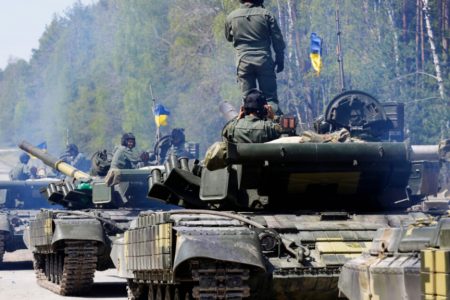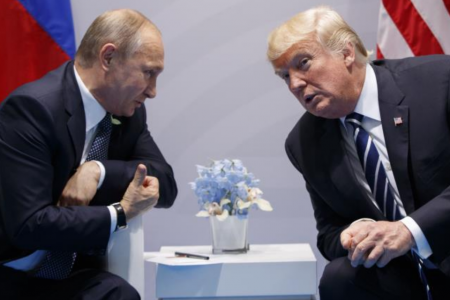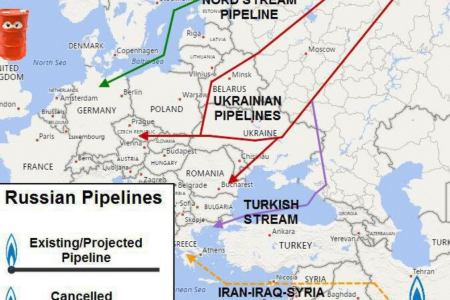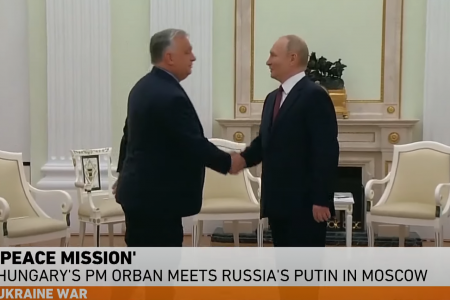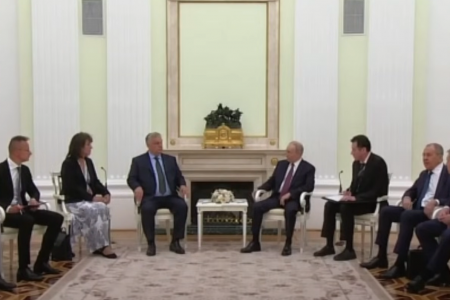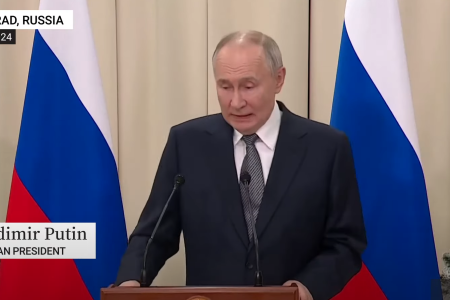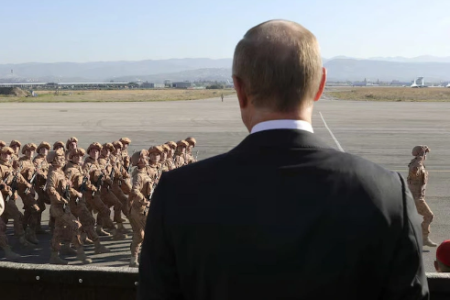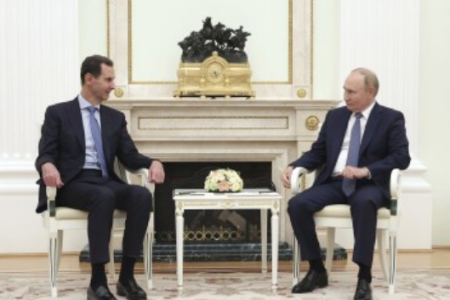
The United States has not invited Vietnam to participate in the upcoming summit on democracy, the US State Department said when announcing the list of invited countries on November 23.
There will be 110 countries participating in the event, which will be conducted online on December 9-10, with the goal of preventing the backsliding of democracy and weakening freedoms around the world.
An international relations expert told VOA that the US move has “limited influence” on Vietnam, while a legal expert said that it makes Vietnam “humiliating” and has negative far-reaching consequences, even strategic, impact.
Dr. Le Hong Hiep, senior researcher in Singapore; and Trinh Huu Long, who now works in Taiwan and manages two legal-related organizations, said in separate interviews with VOA that the US’s refusal to invite Vietnam to the US-led Democratic Summit Maintenance is predictable.
Mr. Hiep and Long pointed out the reason is that Vietnam’s record on democracy and freedom still has too many dark areas rather than bright ones, which have long been criticized by international human rights watchdogs and the US.
“Vietnam is not considered a democracy or a free country by Western definition,” said Dr. Hiep, of the ISEAS-Yusof Ishak Institute for Southeast Asian Studies.
For his part, Mr. Trinh Huu Long, who has been active in promoting democracy and human rights in Vietnam for a long time, said that the US has not yet seen the communist party holding a monopoly on leadership in Vietnam have enough moves to demonstrate that the country is moving towards democracy in the near future.
Supporting his argument, Mr. Long, noted that both Vietnam and the Congo were assessed as “not free” by Freedom House in its “World Freedom Report 2021” with scores of times 19 and 20/100 respectively, but Congo was invited by the US to participate in the Human Rights Summit because Washington saw that Congo was undergoing political reform and had a chance to become a democracy.
Much influence on the image of Vietnam
Mr. Long, who currently holds the position of co-director of the Vietnam Legal Initiative and also the editor-in-chief of Law Journal, added to VOA from Taiwan:
“More or less it also embarrassed Vietnam a bit. Not being part of the global summit on democracy is a clear sign to the world that Vietnam is not in the club of these democracies. It will greatly affect the image of Vietnam in the world. This confirms once again that Vietnam is not only an authoritarian country but also has not shown any determination or indication in political reform to become a democracy.”
This is the first time there has been an international summit on democracy like this, and it will test the assertion that US President Joe Biden made in his first foreign policy speech in February.
At the time, Mr. Biden emphasized that he would return the United States to the position of global leadership to face the autocratic forces led by China and Russia. In the guest list of the US State Department, there are no names of China and Russia.
According to Mr. Trinh Huu Long, the United States under President Biden wants to use democracy and human rights as one of the strategic tools to build important alliances around the world. Therefore, Mr. Long believes that Vietnam’s failure to be invited to the Democratic Summit also means a loss for this country:
“The fact that Vietnam missed this opportunity shows that Vietnam, at least for now, has not been considered in the strategic interests that the US wants to use democracy and human rights tools to exploit. With this move, Vietnam is far from becoming a country with strategic relations with the US when it is clear that Vietnam does not share such common values with the US.
Vietnam-US relations emphasize more substance
Different from Mr. Long’s point of view, a legal expert and advocate for democracy and human rights; Dr. Le Hong Hiep, an international affairs researcher, made an assessment with VOA that the US’s refusal to invite Vietnam was regrettable, but caused minor influence. Mr. Hiep added:
“Vietnam’s absence from the democracy conference once again shows the difference between the two countries in terms of political systems. Whether it will affect the image and position of Vietnam, I think yes, but it will be very limited because this problem itself is not new. Vietnam is not a democratic, free country, there are still some limitations on human rights, which everyone knows, it’s not entirely new.”
Dr. Hiep, now working at the ISEAS – Yusof Ishak Institute located in Singapore, points out the fact that in previous years, the US under President Trump barely criticized Vietnam in terms of democracy, human rights, and politics. President Biden’s authority since taking power has not made harsh statements about that issue of Vietnam.
According to Mr. Hiep, it is because the US is properly aware of the importance of Vietnam in other strategic areas, both in bilateral relations and at the regional level. This researcher says:
“Vietnam-US relations have different aspects and dimensions, regardless of values and political systems. Over the past time, Vietnam-US relations have developed in key areas such as economy, education, security, and defense.”
Regarding Vietnam’s position at the regional level, Dr. Hiep cited the statements of Mr. Kurt Campbell, coordinator of Indo-Pacific policy in the Biden administration, regarding Vietnam and India are two countries that can shape the future of the region as well as shape future US policy towards the region. Since then, Mr. Hiep commented:
“It is one of the proofs that the United States attaches great importance to relations with Vietnam as well as the position and role of Vietnam in the US strategy for the region, especially in their competition with China. Therefore, despite the US not inviting Vietnam to the Democratic Summit, bilateral relations between Vietnam and the US will continue to develop in the coming time.”
Hanoi has not responded yet
VOA tried to contact Vietnam’s Ministry of Foreign Affairs to learn about Hanoi’s response to Washington’s decision not to invite. However, up to the time this article was published, VOA has not received a response from the ministry.
Dr. Le Hong Hiep predicts that Vietnam will ignore, not react, not see this as an obstacle in the bilateral relationship, which focuses on substantive issues. He said there is a tacit understanding on both sides that the summit on democracy is a symbolic event, especially regarding the confrontation between the US and China, and Russia.
Mr. Trinh Huu Long, a legal expert and also an activist advocating for democracy and human rights, has a similar opinion:
“Perhaps Vietnam will choose the safe option, say nothing, not show anger or protest, because there is nothing to protest [laughs], so I think they will choose to say or is to avoid or to be safe.”
Taiwan – ‘example’ of democratization, escaping from China
While Vietnam was not invited, the administration of US President Biden invited Taiwan to participate in the Democratic Summit. This move has angered China. The Beijing government has long considered the democratic island of Taiwan to be Chinese territory.
Mr. Trinh Huu Long, who has lived and worked in Taiwan for the past 5 years, told VOA that Taiwanese people, officials, and the press have all received and expressed positive and joyful reactions about the US’s invitation.
For them, it is also international recognition in the context that China has long continuously pressured countries not to recognize Taiwan and also regularly threatened to use force to occupy the island. island, Mr. Long made an observation.
With his research and experience, legal expert Trinh Huu Long pointed out that after 35 years of democratization, Taiwan’s connection with the West is not only about strategic interests such as economy, geopolitics. but also in terms of values, so this cohesion is profound.
“This is a wise and pragmatic foreign policy strategy that also builds up Taiwan’s identity, which is not only prosperity but also democracy and protection of human dignity,” he said. Long said.
Taiwan is a model for us to refute claims that East Asian values are inconsistent with Western democratic values. Taiwan is proof that Vietnam can also become like that.
Expert Trinh Huu Long
With this identity, Taiwan has confidence and independent spirit, and is increasingly separated from China, has nothing in common with China, which has long been criticized for human rights abuses, still according to Mr. Long.
He made the observation that in Asia, Taiwan is the most successful and most notable democratization model for Vietnam to refer to, given the fact that the rights to freedom of speech, freedom of assembly, freedom of party, political freedom, economic freedom on the island are internationally appreciated. Mr. Long added:
“It gives us a very valuable lesson: An Asian country, a Confucian country, a small country, a country living next to China can completely become a democracy, both prosperous while preserving the traditional values of East Asia. Taiwan is a model for us to refute claims that East Asian values are inconsistent with Western democratic values. Taiwan is proof that Vietnam can be like that too.”
Legal experts and activists for democracy and human rights Trinh Huu Long emphasized that the biggest lesson for the Communist Party of Vietnam can be drawn from Taiwan is that if they actively democratize, they will still control power and bring many benefits to the people.
A democratic Vietnam will also get rid of China’s domination and join the global value chain of democracy and human rights, according to Mr. Long. “We will have more friends, allies,” he said.
Thoibao.de (Translated)



